In pictures: Teenage mothers tell their stories
- Published
Each year about two million girls around the world give birth before they turn 15. Apart from the health risk this can also lead to them dropping out of school and affects future employment opportunities.
Photographer and filmmaker Pieter ten Hoopen met some teenage mothers ahead of the Women Deliver conference in Copenhagen on the health, rights and well-being of girls and women.

Keya, 14, Bangladesh
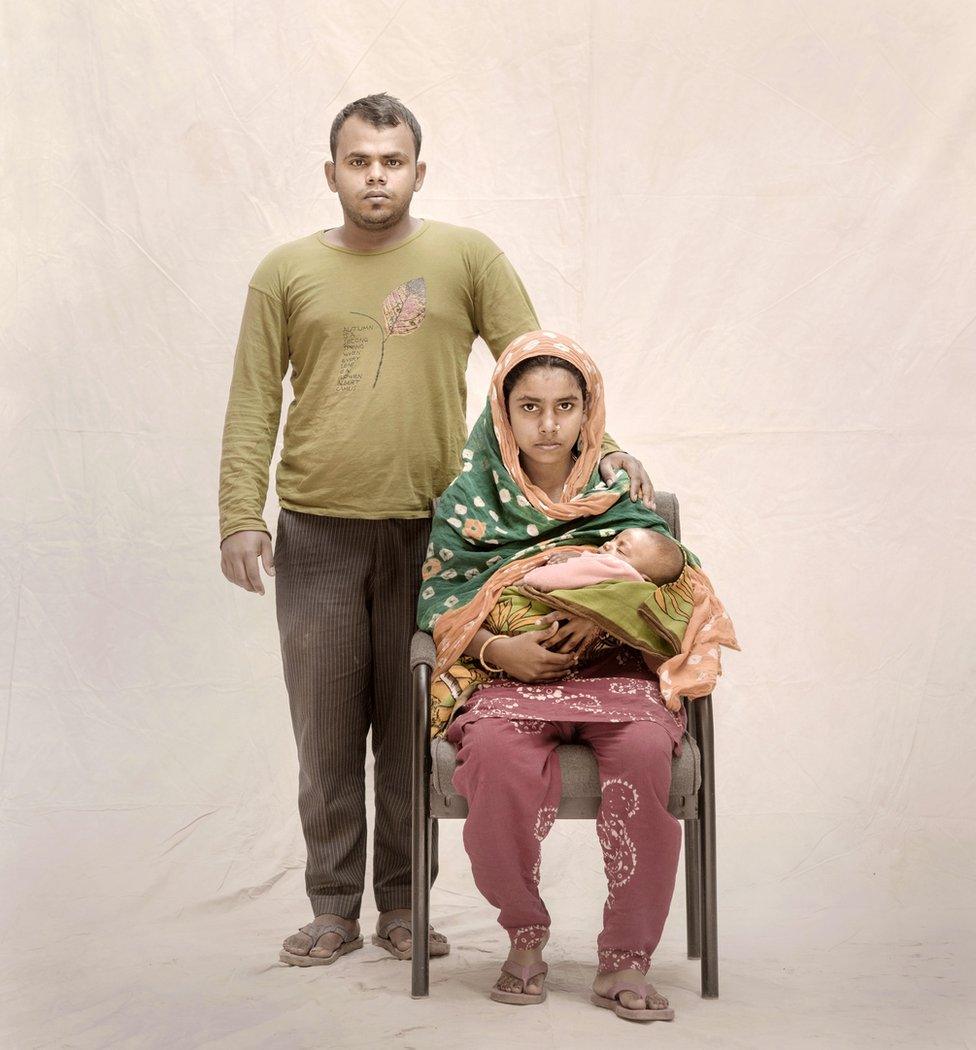
Keya, 14, lives with her husband Jahangir, 21, son Rahim, two months, and in-laws in an urban slum area in Bangladesh. Keya and her husband fell in love and wanted to get married against their parents' wishes when she was 13 years old. Due to excessive blood loss, Keya almost lost her life during the delivery.
"When I got married at 13 I was happy," says Keya.
"I only went to school for one year because my family was so poor. I had spent many years at home helping my mother with the household chores. I got to know my husband from our neighbourhood and knew I wanted to marry him.
"I became pregnant two months later. I wanted to have a child. When I first felt the labour pains, I didn't tell anyone.
"My mother-in-law asked me if I was feeling sick and I said I was. She tried her best to deliver my baby for me but she couldn't do it by herself. Then my mother came and took me to the local clinic."

Ana, 15, Colombia
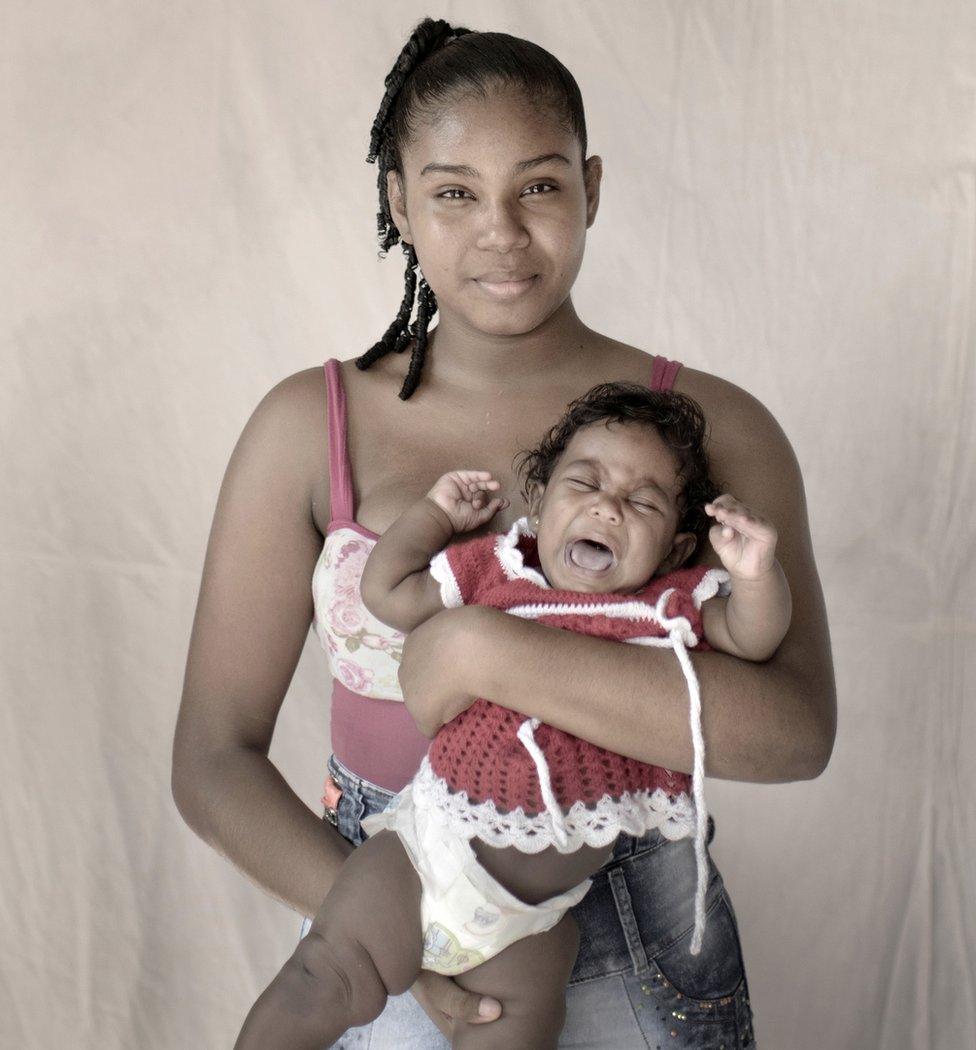
Ana, 15, lives with her daughter Karen, four months, parents and two sisters in a violent neighbourhood of a large city in Colombia. She was in eighth grade when she became pregnant by her boyfriend, who left her soon after. Ana got pre-eclampsia in her last trimester and needed urgent medical care.
"When I was eight months pregnant, I got very high blood pressure. I went to the clinic and they sent me to the maternity ward immediately. I didn't want to be a mother, but when Karen smiles at me, it's something beautiful."

Aissa, 15, Burkina Faso
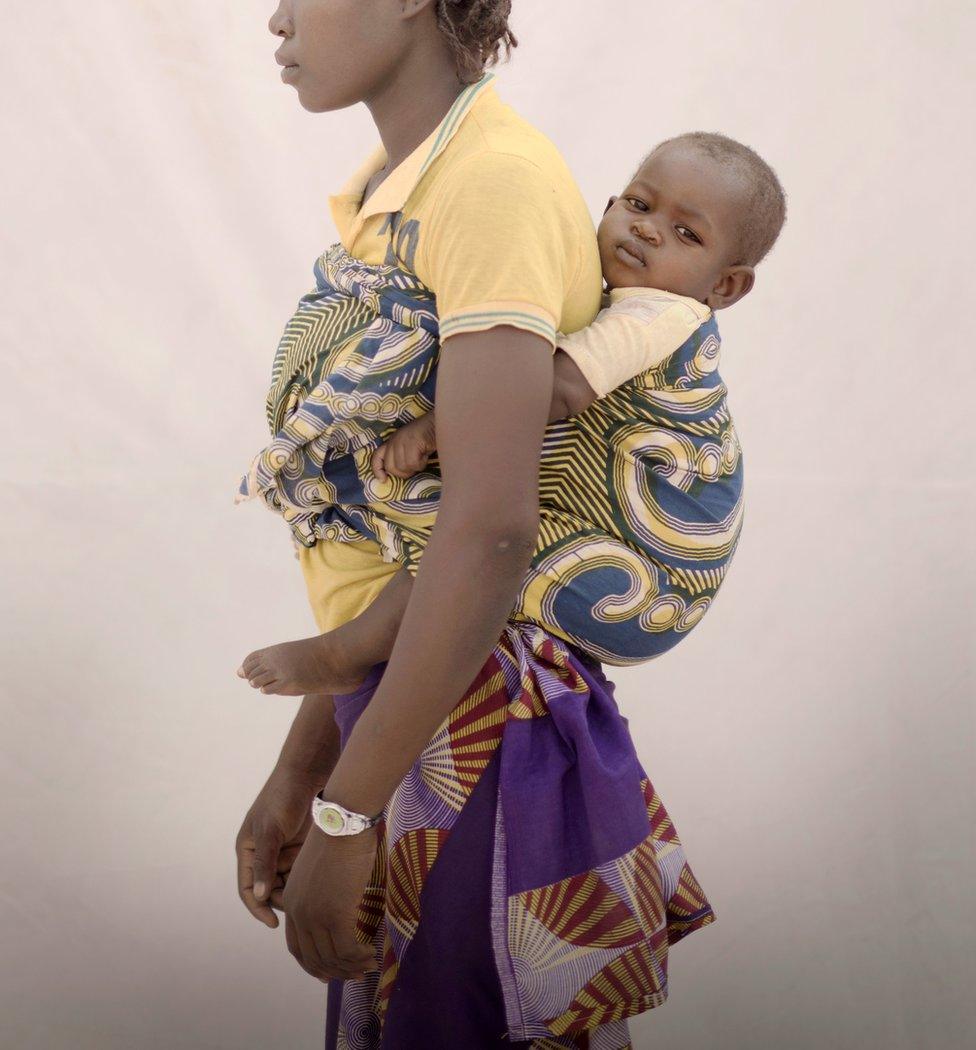
Aissa, 15, lives with her daughter Fati, 13 months, mother and two sisters in a rural area in Burkina Faso. She was sexually abused by her teacher and became pregnant as a result. The teacher was later suspended for one year.
"I was 14 when I got pregnant. It was after my primary school exam. I called my teacher to find out about my results. Ever since he got my number, he kept calling and asked me to come and see him.
"I said I wouldn't go. Then one day, he threatened me and said that if I didn't come, I would have a problem. So I got frightened and went there to get the results of my exam. Then he raped me."

Elianne, Haiti
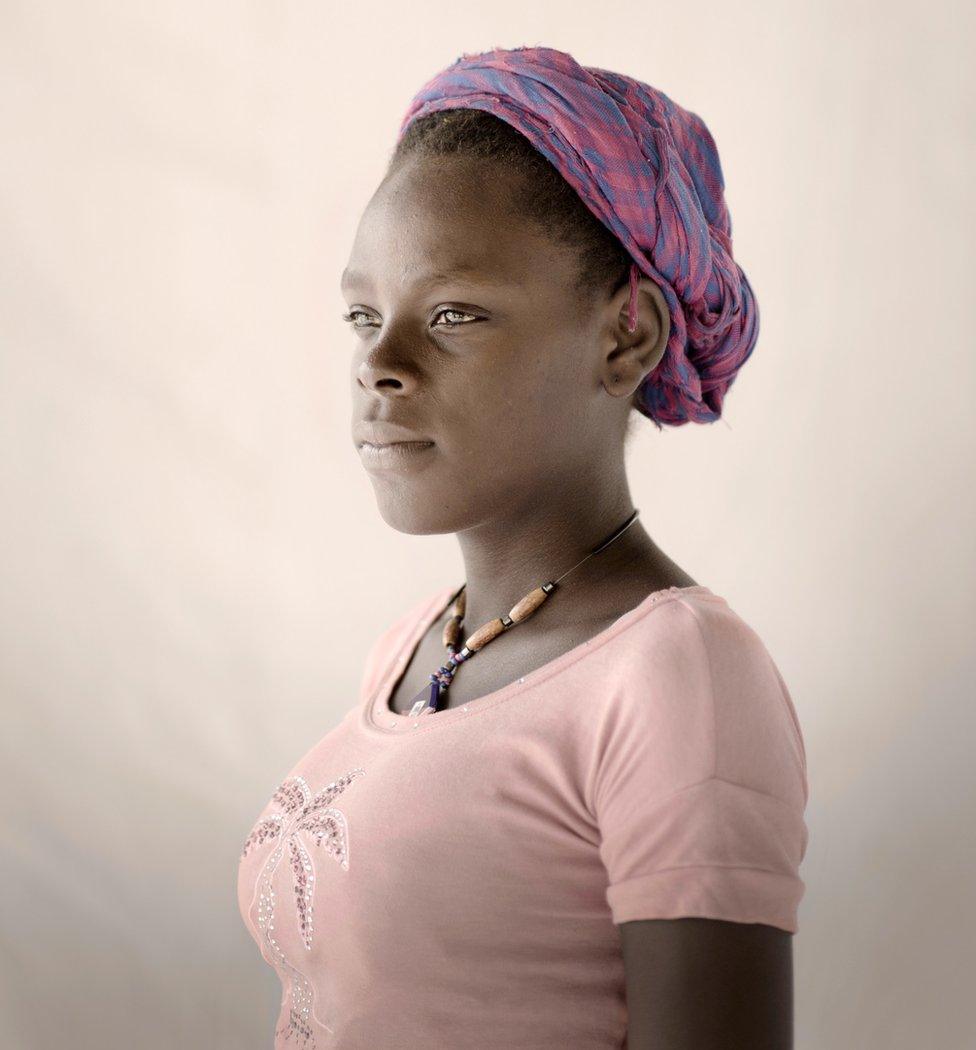
For the past five years Elianne has lived with her father and two siblings in a camp for internally displaced people following the earthquake in Haiti in 2010. Elianne became pregnant with her boyfriend and had to leave school. When she was seven months pregnant, she gave birth to a son who died shortly afterwards.
"I was seven months pregnant when I felt a pain in my lower belly. After a week, I decided to go to hospital to see what was wrong. Each hospital I went to refused me because they said my condition was very serious and that the baby or I could die during delivery."

Amira, 15, Jordan
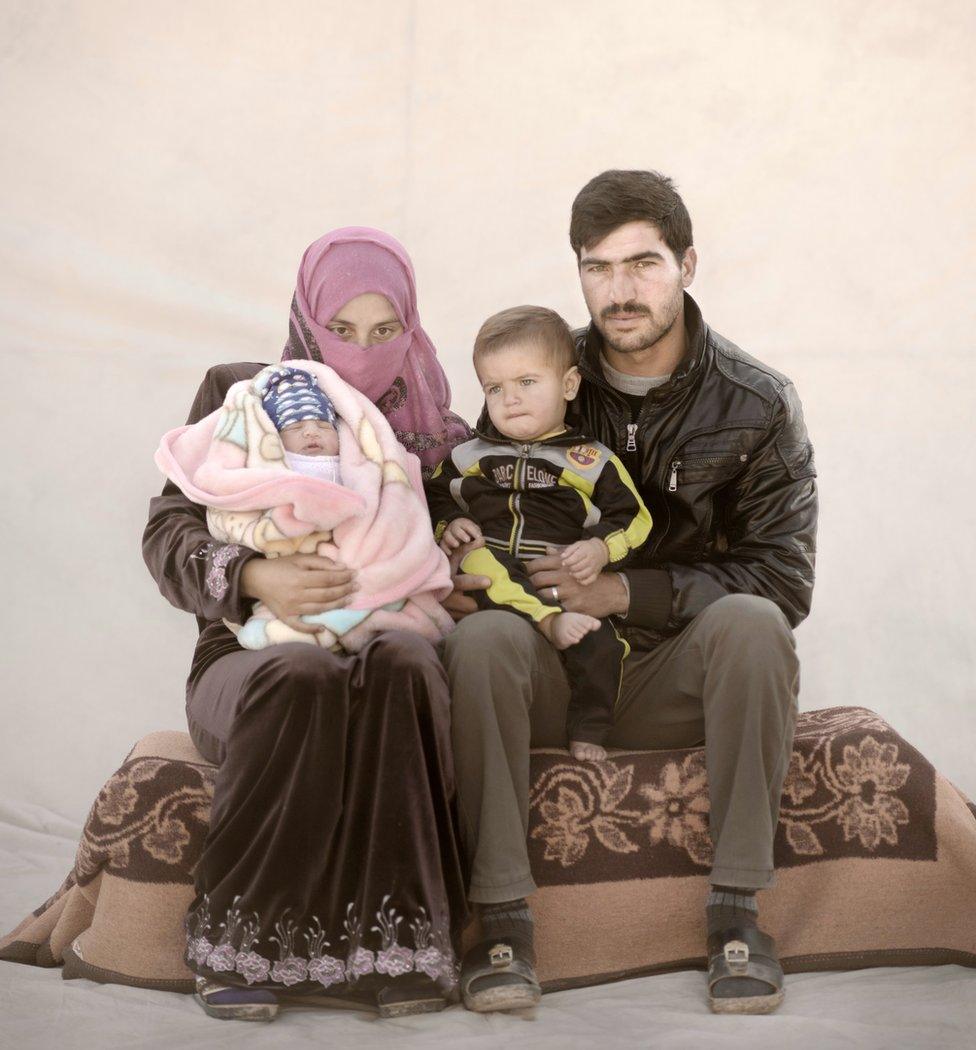
Amira,15, lives with her two children Samer, one, and Amal, 12 days, and husband in a refugee camp in Jordan. She had to stop attending school because of the war in her home country, Syria. Amira got married at 13 and has two children who were born at the maternity clinic in the camp.
"It's so hard to take care of a child when you're a child yourself. For example, I'm not sure if I should be carrying my children all the time.
"Plus, I have to take care of my husband too. I don't have any free time for myself. My children take up much more time than all the housekeeping. My newborn baby cries a lot. Sometimes, I don't know why he's crying. He just does."

Mulenga, 14, Zambia
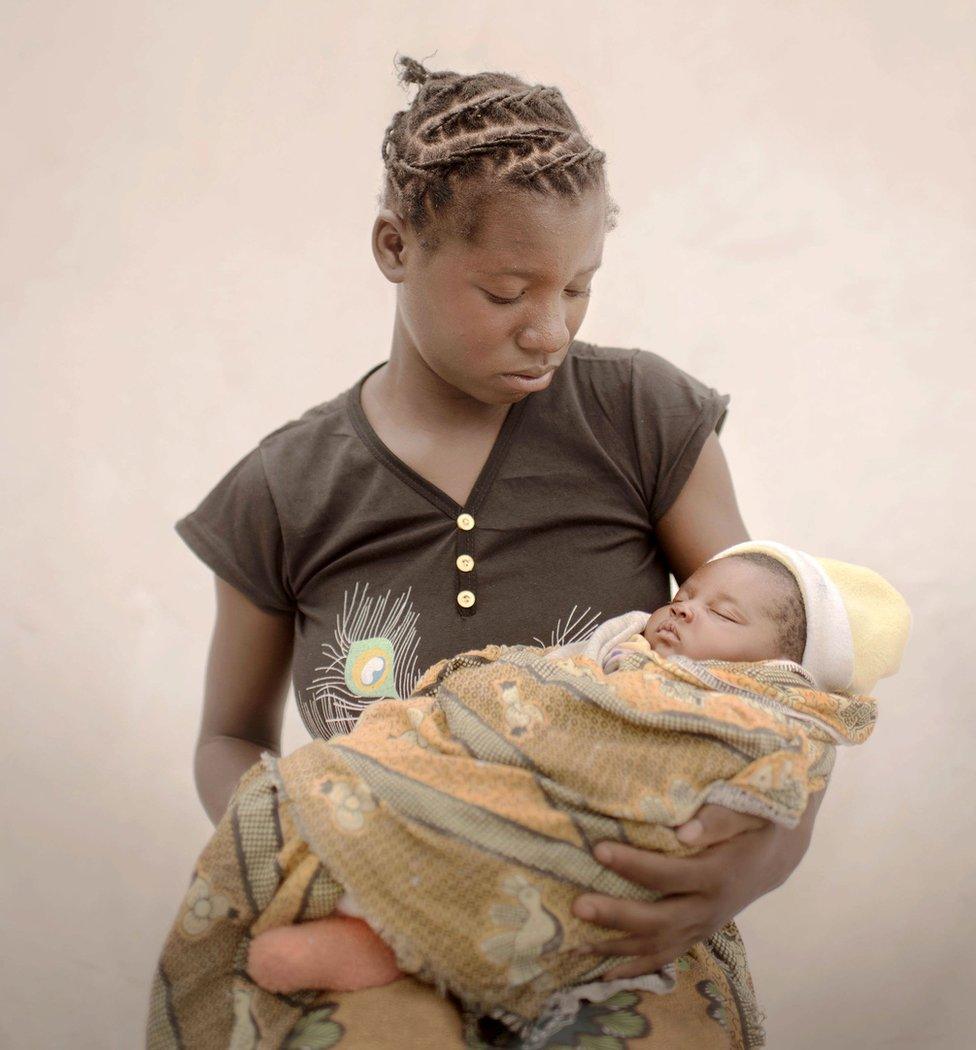
Mulenga, 14, lives with her daughter, parents, her father's second wife and 10 siblings in a remote village in Zambia. She used to go to school and wanted to become a doctor until her mother discovered she was pregnant.
"It's difficult being a mother. I don't have time to play any more. I have to stay at home to take care of my daughter and wash nappies. Before I had a baby, I used to play and go wherever I wanted. I liked to play football."

Poko, 15, Burkina Faso
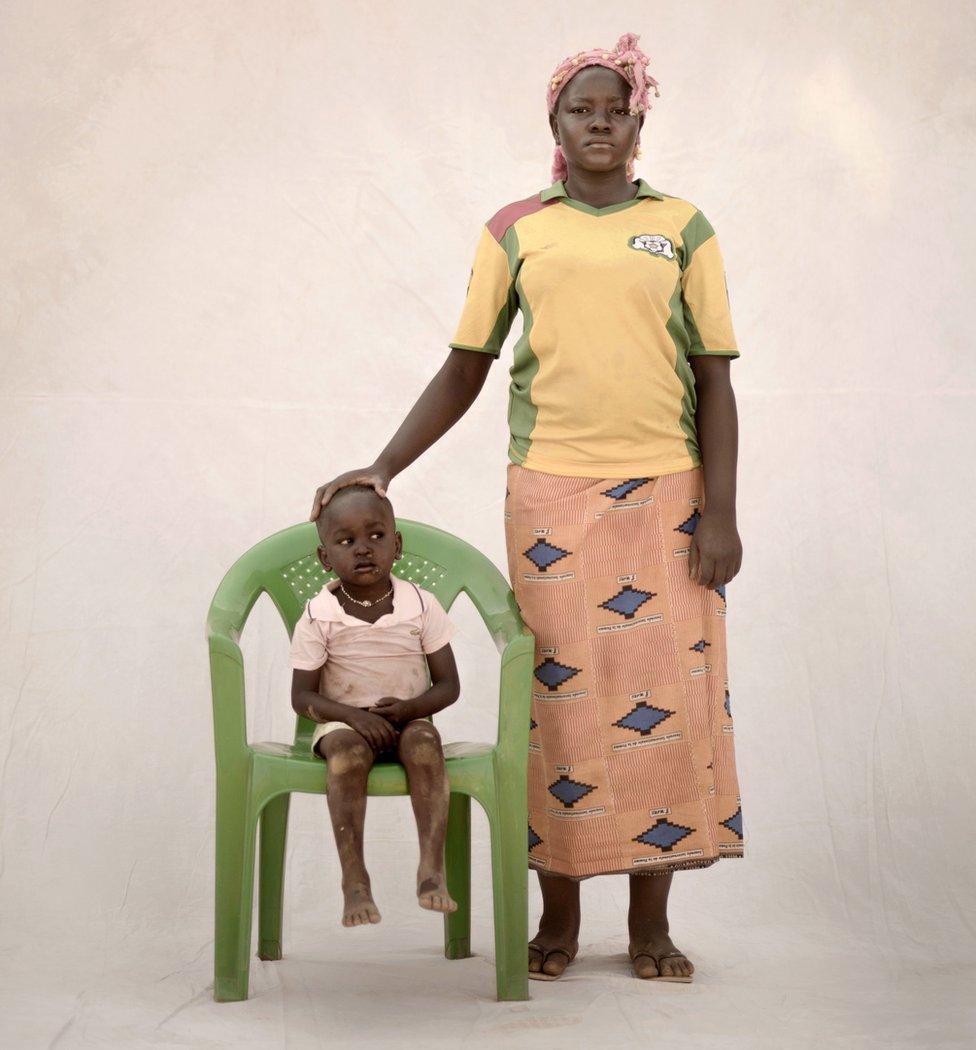
Poko, 15, lives with her son Tiga, three, parents, grandmother and aunt in an urban area in Burkina Faso. She almost died during childbirth. Her family is very poor and cannot pay the school fees for Poko to continue her education.
"I was 12 when I got pregnant. At the time, I didn't know anything about these things. One day, a guy I used to meet wanted me to come to his place. I did not know why, but he said that when the night came, we could sleep together. I went there and he had sex with me. It was my first time."

Thandiwe, 15, Zambia
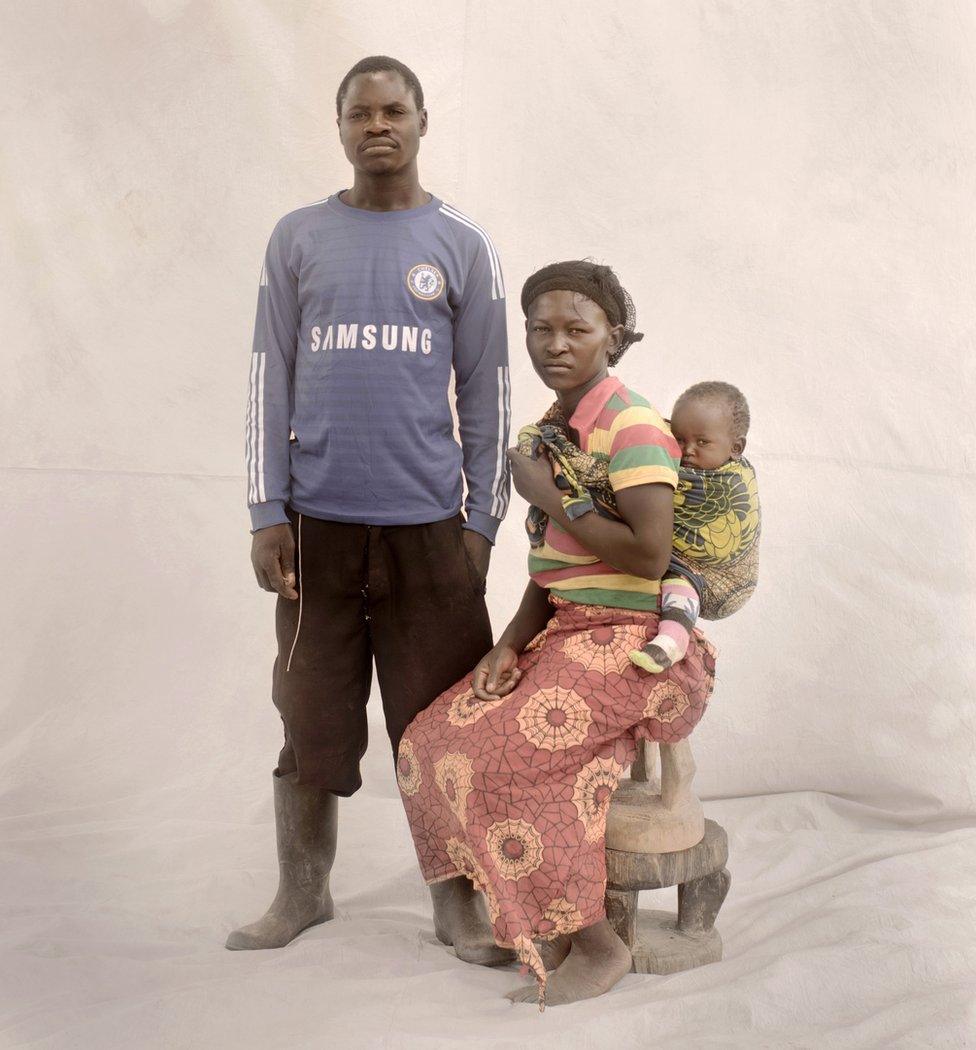
Thandiwe, 15, lives with her daughter, Anna, nine months, husband and in-laws in a remote village in Zambia. When Thandiwe was pregnant, she had to leave school and marry the father of her child.
"I still don't feel ready to be a mother because I didn't expect to have a child now.
"Before I was pregnant, I was in the sixth grade. I wanted to become a chef and work in town. Then I met a boy who was in the ninth grade.
"We didn't have a relationship, we only met about five times - that's all. I was scared when I found out I was pregnant. When my parents knew about it, they brought me to my husband's house and just left me. I didn't want to go there but they forced me to marry him."

Names have been changed to protect identities
All photographs by Pieter ten Hoopen, external / Plan International, external / UNFPA, external will go on show at the Women Deliver conference in Copenhagen from 16-19 May. The exhibition will then travel globally to raise awareness of very early motherhood. The exhibition, which will travel globally, is part of the global initiative #childmothers, external which hopes to inspire support for young mothers and to prevent very early motherhood.